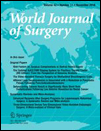Backward Planning a Craniomaxillofacial Trauma Curriculum for the Surgical Workforce in Low-Resource Settings
Abstract
Background
Trauma is a significant contributor to global disease, and low-income countries disproportionately shoulder this burden. Education and training are critical components in the effort to address the surgical workforce shortage. Educators can tailor training to a diverse background of health professionals in low-resource settings using competency-based curricula. We present a process for the development of a competency-based curriculum for low-resource settings in the context of craniomaxillofacial (CMF) trauma education.
Methods
CMF trauma surgeons representing 7 low-, middle-, and high-income countries conducted a standardized educational curriculum development program. Patient problems related to facial injuries were identified and ranked from highest to lowest morbidity. Higher morbidity problems were categorized into 4 modules with agreed upon competencies. Methods of delivery (lectures, case discussions, and practical exercises) were selected to optimize learning of each competency.
Results
A facial injuries educational curriculum (1.5 days event) was tailored to health professionals with diverse training backgrounds who care for CMF trauma patients in low-resource settings. A backward planned, competency-based curriculum was organized into four modules titled: acute (emergent), eye (periorbital injuries and sight preserving measures), mouth (dental injuries and fracture care), and soft tissue injury treatments. Four courses have been completed with pre- and post-course assessments completed.
Conclusions
Surgeons and educators from a diverse geographic background found the backward planning curriculum development method effective in creating a competency-based facial injuries (trauma) course for health professionals in low-resource settings, where contextual aspects of shortages of surgical capacity, equipment, and emergency transportation must be considered.




